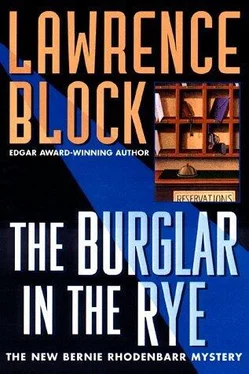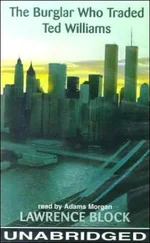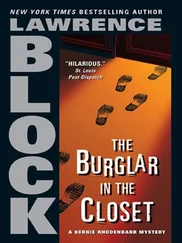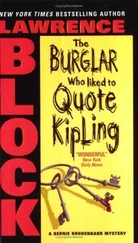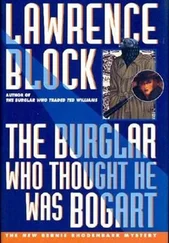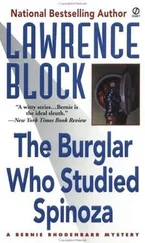He nodded. “Pretty nice town. The locomotive monument’s pretty impressive.”
“How about Huntington?”
“It’s nice, too. I took the clay factory tour.”
“I figured you might have. Is some big conglomerate buying up the clay factory?”
“Jesus, I hope not.”
“You just made that part up.”
“Sure.”
“And you moved the factory from Huntington to Peru…”
“Well, it sounds better,” he said. “ Huntington ’s so damned generic. As a name for a town, I mean. Peru, now, that has some zing to it.”
“Zing,” I said.
“ Peru ’s a country. The Incas, the Andes, Machu Picchu. Exotic-sounding, and then you go from that to Indiana. Peru, Indiana. Plus there’s the fact Cole Porter was born there, which not everybody knows, but still, it’s a little extra flavoring. If a man’s going to have a clay factory, why not float it forty or fifty miles down the Wabash to Peru?”
“Because it sounds better.”
“Well, yes.”
“I guess Nobody’s Baby changed your life more than most people’s.”
“I guess it did.”
“Gulliver Fairborn,” I said.
“Ridiculous name.”
“Distinctive, though. More so than Henry Walden. Ray called you Henry Clay, but he tends to get names wrong.”
“Not an uncommon failing.”
“I wonder if that was in your mind when you picked the name. The story about the clay factory unconsciously led you to choose the name Henry. Or it could as easily have been the other way around.”
“So many things could.”
“Henry Walden. Henry for Henry David Thoreau? And that would lead straight to Walden Pond.”
“Where, as far as I know, there are no alluvial clay deposits.” He picked up his drink and contemplated it. “The goddam scholars pull that crap all the time,” he said. “Pick apart every sentence a man writes, looking for hidden meanings. If they ever wrote anything themselves they’d know it doesn’t work that way. It’s hard enough to get any kind of meaning into the work, never mind a hidden one. What tipped you off? It couldn’t have been the location of the clay factory.”
I shook my head. “You looked familiar.”
“To you?”
“Yes, but just vaguely, and I didn’t think about it much. But you looked familiar to other people, too. In fact one of them thought she recognized you and said hello to you.”
“That stunning black girl.”
“Isis Gauthier. You were standing with your chin in your hand, and she greeted you, and you dropped your hand and turned and she apologized for her mistake. Because once she saw your beard she knew you weren’t the man she thought you were.”
“And that set you thinking?”
“No, it takes more than that to set me thinking. But Ray had the same reaction. He thought he recognized you, and then he decided he didn’t. And that got me wondering why you’d looked familiar to me, and it was because I saw you the first time I walked into the lobby of the Paddington. You were sitting there reading a copy of GQ. It was you, except you didn’t have the beard or the beret. You were wearing sunglasses, weren’t you? And it seems to me you had a lot more hair.”
“Henry Walden,” he said. “Master of disguise.”
“I guess it’s no great trick to disguise a man nobody’s ever seen in the first place, a camera-shy fellow who’s elevated anonymity to the level of an art form. The beard-and-beret combination was perfect, because it made you a type, the distinguished older man taking the trouble to look artsy-bohemian. And the perfectly trimmed silver beard’s so eye-catching that it’s what registers the strongest when anybody looks at you. I saw the beard and I knew I’d never seen it before on anybody else, and that meant I hadn’t seen you before. But I had.”
“I suppose I wanted you to know,” he said. “Otherwise I wouldn’t have spent so goddam much time hanging around the bookshop.”
“You even bought books.”
“You didn’t make much money off me.”
“Not on the books you bought from me,” I said. “I’m talking about the books you bought from Pericles Book Shop and sold to me. The books you said some woman brought in. I was shelving them, and something made me look on page 151 of one of them. That’s where Stavros Vlachos pencils in his code cost. He’d marked that book, and you know what? He’d marked all of them.”
“I didn’t know about that.”
“That’s why he does it there, instead of on the flyleaf like everybody else. I called him, and he remembered the sale and described the man who’d picked out the books and paid in cash. He told me what you paid, too, and you took a major loss on the deal, didn’t you?”
He smiled. “You told me how to make a small fortune in the book business, remember?” He shrugged. “I was lurking in your shop under false pretenses, and I guess I felt I owed you something.”
“How’d you get there the first time? You must have followed her.”
“Her,” he said heavily. “I saw her at the hotel. I took a room there, that’s how come I got to sit around the lobby reading a magazine. I blew into town wearing a wig and sunglasses and checked in under a phony name. Not Gulliver Fairborn, and not Henry Walden, either. And I was just settling in when that wretched child showed up.”
“That’s funny,” I said. “She speaks well of you.”
“Oh?”
“She told me how you wrote to her in Virginia, upset at the prospect of your letters to Landau being auctioned off. She was on a mission to retrieve those letters and return them to you. According to her, she’s accomplished it.”
“What do you mean?”
“Half of it, anyway. I had a phone call from her while I was with Ray. She got the letters. Then she called you in Oregon -”
“ Oregon?”
“You get around, don’t you? She called you, and I guess all you wanted now was assurance the letters were destroyed, because she fed them to a paper shredder and burned what it spat out. I wonder where she got it.”
“Got what?”
“The paper shredder. Did she bring it with her from Charlottesville? Do you suppose they have them at Kinko’s? And how much do they charge to use them?”
He sighed. “It would be nice,” he said, “to run Tiny Alice through a shredder. Or a wood chipper, say. If she got her hands on those letters, then they haven’t been destroyed. And God knows they’re not going to be returned to me.”
“She’s going to sell them?”
“I don’t know what she’s going to do with them. Did she tell you about our liaison? The love affair of the century, starring Alice Cottrell as Lolita?”
“Briefly.”
“I’ll bet. What did she say?”
I gave him an abridged version and he shook his head throughout. He kept shaking his head, and when I’d finished he took a sip of rye and let out a long sigh. “I did write to her,” he said. “There was something in that New Yorker piece of hers that struck a chord. And I received letter after letter in response. Her own situation was impossible, she wrote. She had to get away. Her father was molesting her almost daily and her mother was beating her with a wire coat hanger, that sort of thing. Eventually she wore me down. I told her she could come for a brief visit.”
“And?”
“And the next thing I knew she had arrived, and she was harder to get rid of than a summer cold.”
“I understand she stayed for three years.”
“More like six months.”
“Oh.”
“She had her own bed, but she’d wait until I fell asleep and then crawl into mine.”
“She said she was a virgin.”
“Maybe she was. I certainly did nothing to change her status, much as she tried to get me interested. She had more tricks than a White House intern, but so what? She was a scrawny little runt of a kid, and I’m not wired that way.” He shook his head. “She’s probably hoping there’s a letter or two where I confide in my agent about the exciting young woman who’s just come into my life.”
Читать дальше
